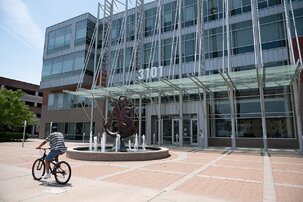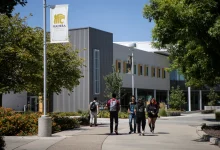Find Free Grants For African American Students
Find Financial Aid: Free Awards Designed with African American Students in Mind

Find Free Grants For African American Students
Free grants for African American students are available in many kinds of educational institutions. These funds aim to help students pay for tuition, books, and living expenses.
In the context of financial aid and scholarships, several funds are reserved exclusively for students of African American descent.
The focus is on supporting educational pursuits and lowering financial barriers for African American students pursuing higher education.
Grants are offered by various professional associations and community organizations to assist African American students pursuing particular careers or subjects.
These awards could be determined by community service, leadership ability, or academic success.
African American students can have access to important resources and possibilities for success in their chosen disciplines by obtaining such grants.
These funds can be obtained from many sources, such as educational institutions, non-profit foundations, and governmental bodies. The goal of these funds is to advance inclusion, equity, and diversity in the field of education.
Where To Find Free Grants For African American Students
A large number of educational institutions provide institutional grants that are expressly intended for African American students.
These awards may pay for all or a portion of the cost of tuition, based on the funding source and the regulations of the school.
African American students who take advantage of these chances can further their academic goals without having to worry about facing undue financial hardship.

United Negro College Funds’ Offers Of Free Grants For African American Students
The organization is a major sponsor of African Americans pursuing higher education. Besides the UNCF provides numerous grants, scholarships, and fellowships directly to black college students.
Also, the organization generously funds dozens of historically black schools and universities that serve African American students at all levels.
African Americans’ right to higher education is the exclusive focus of the oldest American organization, the United Negro College Fund (UNCF).
The UNCF was established in 1944 and formally adopted the famous motto, “A mind is a terrible thing to waste,” in 1972.
UNCF administers grants and scholarships for deserving Black students in collaboration with state and private sector organizations.
Further financial aid programs are funded by endowments and memorial funds created by individuals and trusts to increase the access of underrepresented groups to higher education.
To break through cultural barriers, bachelor’s and master’s level education is prioritized rather than confining participation to two-year vocational programs.
Sponsors of internships and corporate grants include:
- Cisco Systems
- Marathon Oil
- Hallmark
- Monsanto
1. Cisco Systems
Cisco is one of the world’s largest technological businesses, ranking 82nd on the Fortune 100 with more than $51 billion in revenue and around 83,300 workers. Cisco is a multinational firm that specializes in digital communications technologies.
2. Marathon Oil
Marathon Oil is an American hydrocarbon exploration company with its headquarters located at 990 Town and Country Boulevard in Houston, Texas.
According to Fortune 500 and Forbes Global 2000, the company is rated 1900th and 534th, respectively. It was founded in Ohio.
3. Gates Millennium Scholars Program
The Bill and Melinda Gates Foundation established the $1 billion Gates Millennium Scholars Program to lower financial obstacles to higher education for students of color.
For deserving African American students, the program offers millions of dollars as free grants for African American Students and scholarships annually in collaboration with esteemed organizations like the United Negro College Fund.
The Gates Millennium Scholars webpage has details on the deadlines and eligibility conditions.
4. The Sachs Foundation
Every year, the Sachs Foundation awards grants to about 200 Colorado students who require financial aid to attend college.
The period for accepting applications is January 1 through March 1. The final candidate pool is personally interviewed by the Sachs Foundation Board of Directors, which also makes official award decisions.
Undergraduate grants are renewable and often amount to $4,000. Every year, the Foundation chooses about fifty new applications, and all of the grantees that are currently in place have GPAs of at least 3.4, while there is no minimum criteria.
Historically Black Colleges and Universities That Offer Free Grants For African American Students
Over a hundred historically black colleges and universities (HBCUs) around the country have demonstrated strong support for African American students’ educational and social growth.
The list includes well-known universities including Howard University, Morehouse College, and Spelman.
1. Howard University (Washington, D.C.)
Howard University is well known for its commitment to providing grants and scholarships to African American students.
For African American students only, the university provides need-based grants and merit-based scholarships, which help to defray tuition and increase access to higher education.
Additional university grants include the Frederick Douglass Scholars Program and the Mordecai Wyatt Johnson Program, which are awarded based on academic achievement.
The University keeps an up-to-date list of donor grants and scholarships to help deserving students meet their financial needs.
2. Spelman College (Atlanta, Georgia)
Spelman College, a historically black women’s college, offers scholarships and fellowships geared to the needs of African American women. It stands as the country’s oldest Historically Black College for Women
These include need-based grants, academic scholarships, and endowed funds created to help students from a variety of backgrounds.
Spelman collaborates with groups such as the United Negro College Fund to provide funds to underprivileged students.
The school emphasizes a feminist empowerment ideology while celebrating the diversity of cultures around the globe.
3. Morehouse College (Atlanta, Georgia)
Several scholarships and grants are available from historically black men’s college Morehouse College to help African American men pursue their academic objectives.
These consist of grants determined by need, scholarships for leadership, and prizes given for both community service and academic success.
This institution provides free grants for African American students according to their program majors, athletic prowess, and academic standing.
Students who are passionate about music, for example, may be eligible for a grant from the music department. The College provides students with a useful Affordability Brochure to gauge their need for financial aid.
Over 90% of students at Morehouse College depend on some form of financial help because the cost of tuition alone is more than $18,000 each year. Notable alumni from this all-male liberal arts university include Spike Lee.
4. Xavier University of Louisiana (New Orleans, Louisiana)
Xavier University of Louisiana is a private, Catholic, historically black university located in New Orleans, Louisiana. With Katherine Drexel’s canonization in 2000, it became the first Catholic university founded by a saint and the only Catholic HBCU.
Xavier University of Louisiana, a school well-known for its steadfast dedication to diversity and inclusion, provides a range of awards and scholarships reserved especially for African American students.
These consist of institutional grants, scholarships with endowments, and grants given out according to financial need and academic performance.
5. North Carolina A&T State University (Greensboro, North Carolina)
North Carolina Agricultural and Technical State Institution is a public, historically black, land-grant research institution located in Greensboro, North Carolina.
It is also known by the names North Carolina A&T State University, North Carolina A&T, N.C. A&T, or simply A&T. Belongs to the University of North Carolina System as a component institution.
North Carolina A&T State University, one of the top historically black colleges and universities (HBCUs) in the US, offers a wide range of grants and scholarships to help African American students.
These consist of need-based assistance, academic scholarships, and prizes for volunteerism and leadership.
6. Hampton University (Hampton, Virginia)
Hampton University is a private, historically black research institution located in Hampton, Virginia. Hampton Agricultural and Industrial School was founded in 1868 by Black and White leaders of the American Missionary Association to educate freedmen following the American Civil War.
A variety of grants and scholarships are available from Hampton University to help African American students fulfill their dream of pursuing higher education.
These consist of endowment scholarships, institutional grants, and prizes for extracurricular activities and academic achievement.
7. The Development Fund for Black Students in Science and Technology (DFBSST)
A group of black technical experts founded the Development Fund for Black Students in Science and Technology (DFBSST), an endowment fund, intending to remove financial barriers for African American students pursuing careers in science and technology.
African-American undergraduate students participating in relevant fields of study at historically black colleges and universities (HBCUs) are eligible for need-based aid under the DFBSST. For a maximum of four years, awards are given out at a rate of $2,000.
Note: Prospective students should investigate and learn about the financial aid options offered by certain schools and universities because the policies, funding sources, and eligibility requirements of the establishment can have a significant impact on the range of scholarships and grants that are offered.
See the extensive list on the UNCF website or contact your college’s financial aid office for further details about grants and scholarships available to HBCU students.
Furthermore, students should speak with the financial aid departments of the universities they have selected to find out more about the grants and scholarships that are specifically intended for African American students.
Public and Private Organizations That Offer Specialized Free Grants For African American Students
Numerous organizations, especially African American advocacy groups, provide grants, scholarships, and internships to students pursuing specific fields of study.
To increase access to a wider range of student demographics, business sponsors also start general college aid programs.
Suggestions, Look into financial aid options in your field of study if you are advancing with a certain professional goal in mind.
1. The National Black Nurses Association
The association supports African American nurses’ interests in their professional and academic lives. Nurses enrolled in four-year nursing programs can apply for almost a dozen grants, scholarships, and fellowships offered by the organization.
The typical grant amount is between $2,000 and $500. In addition to a written essay and two recommendation letters, financial aid eligibility requires membership in a local chapter of the Association.
2. The March of Dimes Nursing Scholarships
They provide graduate funding for registered nurses with licenses in maternal-child specialties. Don’t pass up these kinds of awards if you’re seeking advanced study in this profession; minority students are eligible.
These are given to the candidates with the best scores who have shown dedication to the March of Dimes mission. Each of the recipients receives a $10,000 scholarship from Pampers®, a longtime partner of March of Dimes.
3. The American Institute of Certified Public Accountants
The AICPA is the national, professional organization for all Certified Public Accountants. (AICPA) offers awards to minorities enrolled in undergraduate and graduate degrees as a way of demonstrating its dedication to diversity in the accounting field.
Grants are given out according to academic merit and financial necessity. The group offers minority CPA candidates motivation through the publication of an ebook titled CPAs of Color.
The AICPA’s objective is to power the success of global business, CPAs, CGMAs, and specialist qualifications by offering the most relevant knowledge, resources, and advocacy, as well as by defending the growing public interest.
4. The American Psychological Association
The scientific and professional association that represents psychologists in the US is called the American Psychological Association (APA).
Minority students enrolling in graduate psychology programs might benefit greatly from grant funds provided by the American Psychological Association’s Minority Fellowship Program.
APA is the largest psychological association worldwide and the primary professional association for psychologists in the United States.
More than 157,000 people are members of it, including researchers, teachers, doctors, consultants, and students.
5. Coca-Cola
Major firms such as Coca-Cola use a wide range of collaborations, grants, and scholarships to support minority education.
While some money goes straight to educational institutions, financial aid opportunities can be found by following the money trail left by corporations.
6. Microsoft
All things considered, Microsoft provides a range of scholarships to uplift and encourage individuals from various backgrounds who are passionate about technology and its ability to improve society.
These scholarships offer networking opportunities and mentorship in addition to financial assistance. Microsoft provides internships and grants to students of color.
And they surpass the creator Bill Gates’ Millennium Scholars Foundation, which distributes the riches to a thousand underprivileged students every year.
7. Sallie Mae
One of the biggest college financing companies in the United States, Sallie Mae is also aggressively researching and addressing financial obstacles to education, especially for students of color.
The Sallie Mae Fund is a scholarship fund run by Sallie Mae. Two grant and scholarship programs offered by the SMF are especially intended for African American students.
8. The Xerox Technical Minority Scholarship Program
Minority students can apply for funds from the Xerox Technical Minority Scholarship Program, which range from $1,000 to $10,000 based on the grantee’s past academic performance, other activities, and remaining tuition balance.
Candidates must be enrolled in undergraduate or graduate programs in Chemistry, Information Management, Computing & Software Systems, Material Science, Printing Management Science, Laser Optics, Physics, or Engineering and have a GPA of 3.0 or above. The deadline for submissions is September 30 at the latest.
Federal and State Available Free Grants For African American Students
Since the middle of the 20th century, minority and underprivileged students have had access to financial aid possibilities provided by the U.S. Department of Education.
Under this grant program, African American students who demonstrate a certain amount of financial need can receive up to $5500 annually.
States also provide college aid, with a portion of it specifically targeted toward communities of color. When African American students need money for college, they should apply for both federal and state funding first.
The Federal Application for Student Financial Aid is the first step in applying for government funding (FAFSA).
The standardized form creates a snapshot of your current situation regarding college expenses based on information about your family’s financial status.
Please Note: Universities use your EFC, or expected family contribution, as a key point of reference when assessing your financial need. Your Student Aid Report (SAR), which formally describes your capacity to pay for college, contains your EFC.

1. Federal Pell Grants
Undergraduate students who require assistance for their school costs may be eligible for federal Pell Grants. Financial aid agencies use your SAR to calculate Pell Grant awards depending on the following:
- Need that excels your EFC, admission status—full- or part-time, the entire expense of your schooling, investing the entire academic year at school.
2. Federal Supplemental Educational Opportunity Grant
Federal Supplemental Educational Opportunity Grant (FSEOG) applications are open to students who meet the eligibility requirements for a Pell Grant.
For students who demonstrate the greatest level of financial difficulty concerning their educational expenses, this program increases grant help.
You will be given first for this grant if your EFC is zero. If funds remain after that, they will be divided among the next most deserving candidates.
This process will continue until all funds have been allocated. To ensure you don’t lose out on eligible funds, submit your FAFSA as soon as possible.
3. Teacher Education Assistance for College and Higher Education (TEACH)
Certain funds are available to college students pursuing teaching degrees that expressly promote the teaching profession.
Graduates of Teacher Education Assistance for College and Higher Education (TEACH) fellowships are assigned to high-need teaching disciplines for a four-year service commitment.
If you accept TEACH funding but don’t fulfill your end of the bargain, the grant becomes an unsubsidized loan with repayment requirements.
Grant recipients must consent to teach low-income students for four of the eight years after graduation from college in high-need areas to receive up to $4000 annually.
4. Academic Competitiveness Grant (ACG) and National Smart Grant
Programs like the National Smart Grant and the Academic Competitiveness Grant (ACG) encourage students to pursue degrees in math, science, and engineering that are relevant to technology.
During their first two years of college, Pell-eligible students are encouraged to apply for ACG money; in their junior and senior years, they can apply for SMART awards.
5. Georgia Student Finance Commission
The Georgia Tuition Equalization Grant is administered by the Georgia Student Finance Commission to assist Georgian college students in covering the cost of in-state private universities.
Although the grant amount is small up to $700 per year it gives underprivileged students a share of the cost of college.
6. Michigan Department of Human Services
The Michigan Department of Human Services keeps track of African American financial aid options. Michigan students receive funding from a wide range of public and private sources.
7. Iowa Minority Academic Grant for Economic Success (IMAGES)
In the IMAGES grant program, which supports minority academic success in Iowa, a minimum grade point average of 2.0 must be maintained throughout each grant term.
Participants must maintain at least 24 credit hours per academic year to be eligible for this need-based grant. Eight semesters are available to those who maintain excellent standing.
Iraq and Afghanistan Service Grant
Although eligible applicants may earn more than the family contribution income restrictions, they still need to fulfill the remaining Pell Grant requirements.
Awards are given to candidates whose guardians or parents passed away while serving in Iraq or Afghanistan following 9/11. Candidates had to have been enrolled at least part-time or younger than 24 at the time of application.
Minority Undergraduate Retention Grant
The State of Wisconsin offers several excellent educational grants, including the Minority Undergraduate Retention Grant.
This program is open to financially disadvantaged and at-risk minority students desiring to complete an undergraduate degree program in Wisconsin.
North Carolina Community College Grant
The North Carolina Community College Grant is available to Pell Grant recipients who continue to demonstrate financial disadvantage.
To qualify, students must be enrolled in one of the state’s two-year community college programs.
Scholarships For African American Students
Ron Brown Scholarship
Candidates must be seniors in high school who identify as Black or African American and possess U.S. citizenship or fulfill the conditions for permanent residency.
In addition, candidates need to show that they have experience in community service, academic excellence, leadership potential, and financial need.
American Association of Blacks in Energy Scholarship
Candidates must be seniors in high school who identify as members of an underrepresented minority and have a GPA of at least 3.0.
Applicants must plan to major in a STEM discipline and enroll in an undergraduate program the semester after high school graduation.
Fontana Transport Inc. Scholarship
Applicants must be seniors in high school who are first-generation members of underrepresented minorities.
The applicant must be accepted into a four-year university that has been accredited and has a pre-medical, psychology, or STEM major in mind.
NAACP Legal Defense and Educational Fund Herbert Lehman Scholarship
Applicants must be first-year college students, seniors in high school who are graduating or transfer students in their first or second year.
Candidates must be citizens of the United States, have a track record of academic achievement, have experience in public service, and have a combined family income of no more than $70,000.
PlayStation Career Pathways Scholarship
In addition to being enrolled or accepted as a full-time undergraduate student at an authorized four-year institution, applicants must identify as Black or African American.
A minimum 3.0 GPA must be maintained, and candidates must list computer science or computer engineering as their major.
Institute of Transportation Engineers Diversity Scholars Program
Applicants may be seniors in high school or transfer students from underrepresented minorities in colleges.
Applicants must plan to major in transportation engineering or a closely related discipline at a four-year university with accreditation.
Preferred are first-generation college students who have the most need for financial assistance.
McDonald’s Black & Positively Golden Scholarship
To be eligible for the scholarship, applicants must be enrolled in an undergraduate program at a historically Black college or university (HBCU) for the current academic year.
They must have financial need and great leadership potential, maintain a minimum GPA of 2.7, and be citizens or lawfully permanent residents of the United States.
National Black MBA Association (NBMBAA) Scholarship
Candidates must be current members of NBMBAA and either citizens or permanent residents of the United States.
At the time of application, they have to be enrolled full-time in a graduate-level business school that has been accredited.
Together with academic brilliance, leadership potential, and community service experience, candidates must also exhibit a minimum 3.0 GPA.
Blacks at Microsoft Scholarship
Applicants must be African American seniors in high school who intend to enroll in a recognized four-year institution as soon as they graduate.
Along with having a minimum 3.0 GPA and exhibiting great leadership potential, applicants must also show that they need financial aid to attend college. Applicants must major in related business, computer science, or engineering.
Extra Financial Assistance That Provides Free Grants For African American Students
Thurgood Marshall College Fund
Every year, the TMCF offers thousands of internship opportunities along with millions of scholarships to HBCUs and other predominately Black institutions and universities.
Federal Work-Study
With the help of this kind of financial aid, students can work in a field connected to their major and earn money while gaining experience. Candidates for work-study may utilize their earnings for living expenses or their studies.
Free Application for Federal Student Aid
To access any free grants for African American students or anyone seeking financial aid, students must file the FAFSA to be considered for almost all federal and institutional scholarships.
Scholarships based solely on merit may also give priority to applicants whose FAFSA shows a high level of financial need.
National Association for the Advancement of Colored People
The largest and oldest civil rights group in the US is called the NAACP. A range of yearly legacy scholarships for Black and African American college students and high school graduates are funded by the NAACP.
Percentage of African American Students Getting Scholarships
88% of Black students, according to the NCES, were awarded grants and scholarships for the 2015–2016 school year. More specifically, compared to other racial or ethnic groups that year, Black students had a greater rate of Pell Grants and private loan borrowing.
Difference Between Need-based and Merit-based Scholarships
Need-based scholarships require students to prove a considerable financial need on their FAFSA, which is often done through income tax returns or other documented family contributions.
WHILE
Merit-based scholarships reward students for achievements such as academic success, leadership potential, or community service experience rather than only on financial need.
Application Steps To Free Grants For African American Students
Most of the time, the qualifying requirements for any kind of grant will depend on your capacity to pay for college as well as your short- and long-term objectives.
Fill out the FAFSA. While you should apply for any available federal loans, you should also take advantage of the federal grant programs, for which you will be automatically considered.
These include the Pell Grant, the National SMART Grant, the TEACH Grant program, the Academic Competitiveness Grant, and the Federal Supplemental Educational Opportunity Grant, or FSEOG.
Extra Strategies for College Savings
In addition to applying for as many grants and scholarships as they can, college students should look into some other funding options.
Graduate students can, for instance, apply for fellowships that provide stipends to cover costs while they conduct research for a particular project.
Federal work-study programs are another option for students to consider. These programs compensate students for working on-campus jobs.
The Higher Education Reconciliation Act of 2005 also makes it easier for students who are expressly studying online to find public and/or private school funding.
Summary
To sum up, free grants for African American students are essential to advancing educational justice and enabling people to fulfill their scholastic ambitions.
African American students can overcome financial obstacles and pursue higher education with confidence and drive by making use of these resources.
These awards may pay for all or a portion of the cost of tuition, based on the funding source and the regulations of the school.
African American students who take advantage of these chances can further their academic goals without having to worry about facing undue financial hardship.
FAQs
What scholarships are African American students most eligible to receive?
Scholarships from prestigious institutions like the Thurgood Marshall College Fund, the Jackie Robinson Foundation, the Rosa L. Parks Scholarship Foundation, and many more are available to minority students. Make a difference and pay tribute to your ancestry with your academic accomplishments!
What is the easiest type of scholarship to get?
Certain universities, particularly those that are private, provide every candidate automatic consideration for a merit-based scholarship that is given out during the acceptance process. Since these scholarships don’t require a separate application, they are frequently the simplest to receive.
Which scholarship is easy to get in the USA?
Fulbright Scholarships: Each year, more than 4000 students receive this prize. When a student is awarded a Fulbright Scholarship, the majority of their costs are paid for, including living expenses, tuition, and travel expenses.
How to get a 100% scholarship in the USA?
- The paperwork needed to apply for scholarships to study in the United States:
- Copies of academic records (GPA)
- Scores from standardized tests (SAT, ACT, GRE, GMAT)
- Passport or photo ID (Aadhar card in some circumstances)
- Proof of language ability (IELTS or TOEFL exam results)
- A letter of motivation or mission statement.
- Letter of recommendation.
What grade is best for a scholarship?
The greatest period for students to receive scholarships is in grade 12. There will never be another period in history with less competition and more opportunity.












